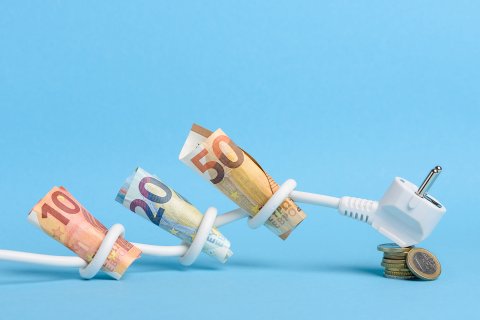Shared qualities of renewable energy communities

Renewable energy communities (RECs) are expected to play an important role in the European energy transition, as evidenced by new EU regulations and Dutch energy policy. RECs organise collective and citizendriven energy actions and are considered to be key organisations for effective transitions to more peoplecentred and resilient energy systems (IEA, 2023). Within the current regulatory framework, RECs have freedom to determine how they are organised, how burdens and profits are distributed, etc. As such, the Dutch interest association for energy cooperatives, EnergieSamen, expressed concerns about if and how all RECs can maintain a steady level of quality. We propose standardisation as a promising avenue to guarantee minimum quality.
Our team aims to investigate whether standardisation is an appropriate tool for providing the intended quality, how standardisation should occur, and what minimum requirements should be. We do so by
- investigating the expected contribution of standardisation to ensure a steady quality level and identifying potential trade-offs,
- exploring which practices and principles are inherent to a legitimate REC, and
- translating these practices and principles into norms. Additionally, we will
- identify normative underpinnings in the decision-making process coordinated by NEN, and evaluate its (perceived) legitimacy.
We recognise and will address distinct disciplinary building blocks, including the techno-economic, social, legal and organisational. The connecting theme between these disciplinary blocks is energy justice.
The project has two main goals. First, we will guide and provide legitimacy to community renewable energy in strengthening the quality of Dutch RECs. Second, we aim to empower RECs by collecting and translating their needs, desires, practices and ideas into useable norms. Ultimately, we intend to support the RECs in accelerating a just and sustainable energy transition. In our pursuit of these goals, we use the following methods and key activities:
- Literature study and interview. An interdisciplinary literature study will help provide an overview of best practices and principles for RECs, and identify benefits and trade-offs of standardisation. We use theories and concepts including energy transition, just transition, energy communities, normalisation and standardisation. Several scholars have conducted multi-actor multi-criteria analyses to identify key performance indicators (KPIs), shared characteristics and mainstreaming approaches for RECs (e.g., Lode, 2021, 2022; Wittmayer et al., 2021; Yildiz et al., 2015). However, there is no agreement among scholars on quality indicators and their applicability is limited, nor have there been studies on the Dutch national level. We will test and corroborate the results from the desk-study through 6-8 semi-structured qualitative interviews with REC experts and REC participants (RQ1/2).
- Imagining workshop: What is the role of RECs in the energy transition? Expectations are high, but can RECs deliver on their promise of achieving a just transition and consumer empowerment? How can we reimagine these communities to do so? To this end, we will organise a stakeholder imagining workshop with a diverse group of REC representatives, EnergieSamen, policymakers and researchers (RQ2).
- Transdisciplinary focus group: In transdisciplinary meetings and focus groups we will translate the results of the previous steps into best practices, principles and trade-offs for empowered RECs. We will derive a set of norms, with the potential of serving as minimum requirements and standards (RQ3).
- Process observation: How are standardisation processes organised, and with whom? What are the normative underpinnings of these processes, and how does this shape decision-making? A first literature review on these questions (see also above) will help us formulate a data collection plan. We will have 3-5 semi-structured qualitative interviews with participants and organisers and observe 3 meetings at NEN, to identify the participatory and decision-making principles, the (implicit) power dynamics between stakeholders and the perceived legitimacy of the process (RQ4).
Non-UU partners
- Siward Zomer (EnergieSamen)
- Eva Winters (TNO)
- Charlotte Koppen (NEN)


